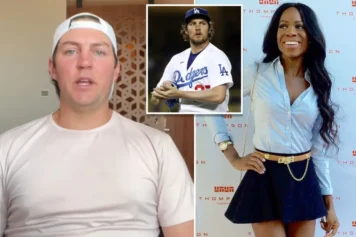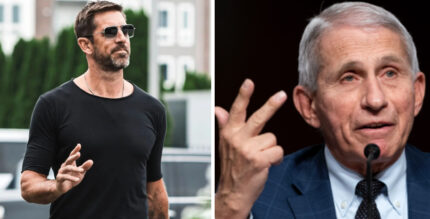When word dropped last year that The Great Gatsby would be turned into a summer feature film, my response, I believe anyway, was similar to most people’s responses. Some variation of “Really?…OK,” was the only thing I could utter.
A movie version of F. Scott Fitzgerald’s classic novel is certainly an interesting shot for a summer blockbuster. Damn near all of us either read this book in high school or at least heard of the book growing up. Details are fuzzy, but something about a long-lost love story resonates. This wasn’t on the “list” of joints that I subconsciously decided I would go see way back when I first read about it, but I considered it. Knowing that Leonardo DiCaprio was in the movie and playing the title character certainly raised the stakes. There aren’t five people breathing with better acting chops than this dude (he was masterful in Inception – the best movie to come out of the last five years, by the way), but still, there are no guarantees (Django for example). When a friend of mine asked what I thought about the movie a few weeks ago, I responded, “I’d think a lot better about it if Tobey Maguire wasn’t in it.”
Other than the Spider-Man trilogy, I’ve never cared what Maguire did or wanted to do. I find his acting to be wooden and detached. Unfortunately, all of the concerns I had about Maguire are brought to his role as Nick Carraway, the narrator of The Great Gatsby.
He plays a former writer who is now interested in the bonds business and decides to cash in on the money bubble growing in 1920s New York. Drawn by the glamorous life, he rents a house in Long Island with plans to spend the summer learning more about finance and to spend time with his cousin, Daisy Buchanan. Played with emotional transparency galore, Carey Mulligan brings Daisy to life as only she can; read: during the happy scenes, not at all. But when it’s time to frown and scream and cry, Mulligan goes in. She’s not a bad actress, but she’s typecast. She’s made a name for herself playing sad and depressed blonde types for the last few years, and here, she does it again. She’s like the new Angela Bassett. At some point in every movie, Carey is gonna cry; that’s a given. She’s married to the philandering Tom Buchanan (Joel Edgerton), an arrogant old-money type who dominates Daisy and a good deal of her activities.
I should tell you right now: The first 20 minutes of the movie are, for all purposes, a musical. There is little dialogue, just a lot of singing and dancing. They party mega-hard. Maybe this is what it was like working for Bad Boy in the ’90s, or Google, today. Opulence on top of opulence, with half-dressed women everywhere, truck jewelry, tailored tuxedos, bottles of expensive champagne, and lots of fireworks. It’s like New Year’s Eve, just every weekend. The movie picks up steam, but the first 20 minutes are borderline leave-worthy. The extravagance gets weird, put it like that.
It’s also hard to take the beginning of the movie seriously because of the way the actors are speaking. It’s in an exaggerated “upper-crust” accent. Almost a parody of how we think rich people of that era spoke. It’s corny and seems strikingly amateur. Not only that, there is no DiCaprio for that initial part. Only when he finally graces the screen, do we begin to understand what’s going on.
He plays a wealthy but lonely businessman with a secret background. He befriends Carraway, who lives in the house next door, in hopes that he can help him get reacquainted with Daisy. She is his long-lost love and it’s been five years since they’ve seen each other. During their first dalliance, there were barriers to their union, and in the time since, she’s moved on.
It’s at Gatsby’s house where all of these amazing parties take place, but he remains a mystery to the majority of the people in attendance. Living across a bay from Daisy, the parties are all a plan to lure her over, and everything he has, he bought for her. He’s waited a long time to make his move, and married or not, Jay Gatsby has plans to win her over. The rest of the movie is dedicated to the execution this plan.
Daisy eventually lets Gatsby back in her life, but when he asks her to leave her husband, all hell breaks loose. She wants to leave, but the fear is hard to overcome and the back and forth of this emotional trifecta powers the last third of the movie. This is where the movie gets good because it allows DiCaprio to do what he does best. Passion mixed with intricacy is what makes up his skill-set and he lets loose. How all the strings tie together towards the end of the movie, and the high drama that ensues, saves the entire movie.
We don’t give out grades here, but you should know that this isn’t a classic. Not even close. It’s decent escapism, with few outstanding moments. The script isn’t special and the other actors don’t bring that much to the table, either. Leo has to carry this whole joint on his shoulders, Kevin Durant-style, and it’s too much even for his talents. Every scene absent of him is a legitimate bathroom break moment.
It’s not terrible, but the truth is, the best thing about the movie is arguably the soundtrack, which is never a good sign.



